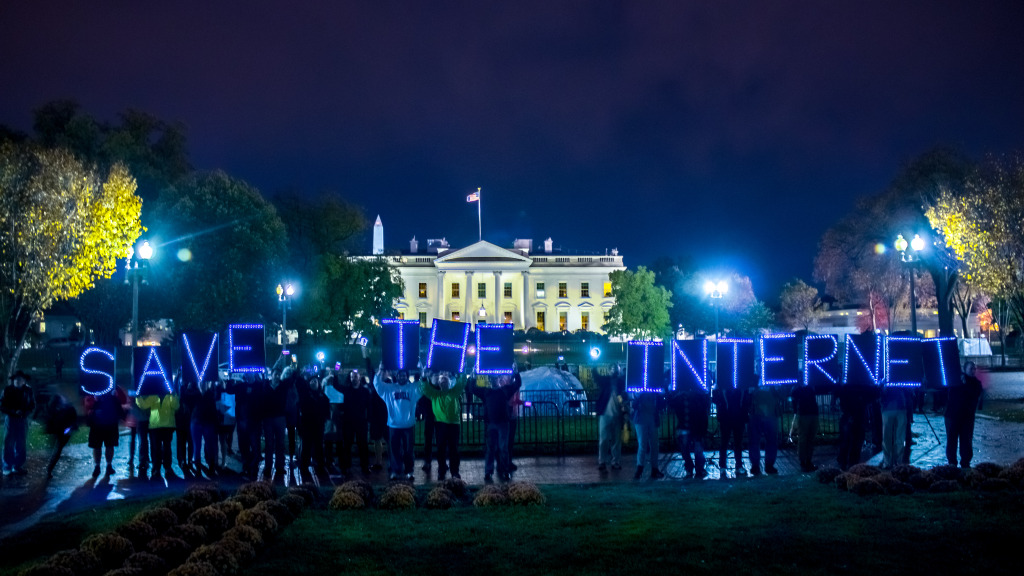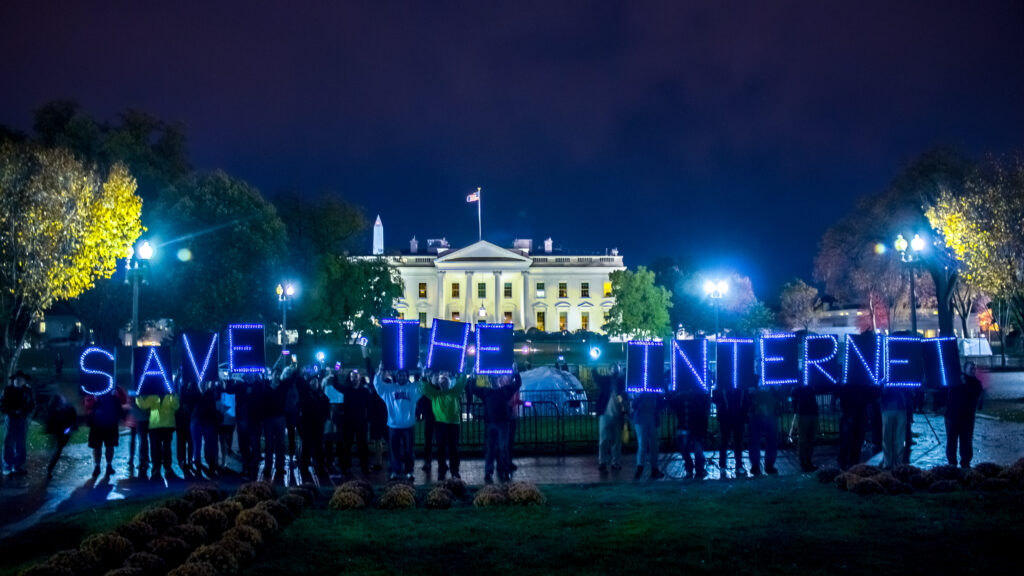
If you are currently reading this article on your computer, tablet, or smartphone, then you are most likely one of three billion people on Earth who have come to take the Internet – and all the freedom it has to offer – for granted. We cannot imagine life without the Web, which serves as a platform for daily entertainment, learning and even political movements. The UN has gone as far as to declare Internet access a human right.
The Internet isn’t without its controversies, ranging from celebrity photo scandals to international censorship issues. The latest grand debate, however, revolves around the fundamental role of the Internet: preserving consumers’ unhindered access of (lawful) content from content-creators and providers. If you, the consumer, wish to read this article or LeMonde.fr, then you have equal access to both. This is net neutrality: the notion that “all internet traffic be treated equally“. But treated equally by whom? In the chain of Internet content distribution, the net neutrality debate hinges on the middleman between content-creators and the consumer—broadband Internet Service Providers (ISPs) such as Verizon, Comcast and Cox. Currently, the ISPs manage your Internet traffic by treating all content equally.
If net neutrality is diminished or eliminated, however, then ISPs are in the unique position to create an Internet “fast lane”. If you’re reading this article, LeMonde, or the Washington Post online, and the Washington Post has paid to use the fast lane, then their content will reach you before this article and LeMonde. If you subscribe to the Washington Post online, then they could charge you more to cover their expenses to use the fast lane.
Net neutrality could be established by reclassifying ISPs as “common carriers” under Title II of the Communications Act of 1934, whereby they would be obligated to provide the same services, sans discrimination, to all consumers the way gas and electricity giants are. This would be a change from their current classification as “information services”, which have no such obligation.
In a recent announcement, President Obama stood in support of net neutrality, summing up proponents’ views succinctly below:
More than any other invention of our time, the Internet has unlocked possibilities we could just barely imagine a generation ago. And here’s a big reason we’ve seen such incredible growth and innovation: Most Internet providers have treated Internet traffic equally. That’s a principle known as “net neutrality”—and it says that an entrepreneur’s fledgling company should have the same chance to succeed as established corporations, and that access to a high school student’s blog shouldn’t be unfairly slowed down to make way for advertisers with more money.
On the other hand, critics of net neutrality cite overregulation of the Internet as a cause for a decrease in the US’s innovative power and for the government to continue to supposedly spy on us and infringe on our privacy rights, among other reasons. A coherent set of arguments can be found here.
The US is not the only nation-state to debate net neutrality: the European Parliament just passed rules “enshrining new net neutrality provisions” and Brazil officially adopted its Marco Civil featuring strong provisions for net neutrality, to name a few. Despite these strides elsewhere, all eyes remain on the debate in the US. Why? Because the US remains a leading world power that sets precedents, especially in the area of human rights and freedoms. Loss of Internet neutrality is a loss for individual rights: the Internet would cease to be an equal forum for free speech and expression. As it does during elections and campaigning, money would influence how loudly one can speak and how effectively one can be heard. Yes, some bloggers are more popular than others, some content has more viewers than others, but at its core, the Internet remains a platform that offers equal opportunity: everyone starts at zero. By throwing money into the equation, this would no longer be the case. For the US, a loss of Internet neutrality would abate the reputation of a country that touts its foundation upon equal rights for all.
Hypocrisy at home erodes our ability to meet foreign policy objectives. In failing to establish net neutrality at home, the US inadvertently permits more authoritarian governments to promote pro-government content and block anti-government content in their own countries. In an economic sense, the costs of entry for a foreign – or even small domestic – tech entrepreneur would rise, making them less likely to attempt to play on the American field of innovation. Following suit, other nations would likely establish their own protectionist policies, redrawing lines across the realm of technology—one of the very sources of globalization. Ultimately, a failure of net neutrality means the end of the Internet as an egalitarian medium, an economic setback, a rise in protectionism and a loss for democracy worldwide.
The views expressed by the author do not necessarily reflect those of the Glimpse from the Globe staff, editors, or governors.







